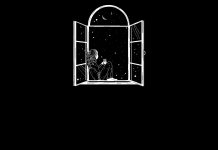We think we know what a good life is, but what is a “good death”, if it exists? When incurable diseases ravage the body and death becomes an imminent reality, the question takes on painful outlines, especially in a society open to arranging the circumstances of death according to the will of its protagonist.
For $700, customers can rent a room with white armchairs, green plants, paintings, soft music, and other elements to create an intimate atmosphere. Family members are welcome and served cake and coffee, and can even watch a film, as the room is equipped with audiovisual equipment. The services also include a rendition of Leonard Cohen’s “Hallelujah”. In fact, this is the song the client will be listening to as they draw their last breath, because all these services are offered by the Haut Richelieu Funeral Complex, according to the Canadian Press. To avoid the inconvenience of dying in hospital, and because many patients do not want to die at home, the funeral home organises a ceremony during which the patient is given medical assistance to die, administered by a doctor hired for this purpose.
The market is adapting quickly and the legalisation of the right to decide when and how a terminally ill patient dies has given rise to new services; a framework is provided for the planned death of those who are willing to pay. The medical act is already covered by health insurance, and the money collected by the funeral complex is used to rent the space with all its facilities.
The fifth government report produced after Canada legalised “medical assistance in dying” (MAID) showed that 15,300 people died by euthanasia in 2024 (4.7% of deaths in the country). The average age of people in this group was 77, and in most cases (96%) death was considered “reasonably foreseeable” due to serious medical conditions such as cancer.
People fear death, but they also (or even more) fear the suffering and decline that precedes it, so the idea of managing the end of life seems increasingly attractive to modern society. Death, like everything else, has always had its “time” (Ecclesiastes 3:2), but today, more than ever, people are considering the possibility of cutting the thread of life before it takes an unbearable turn towards pain, agony and helplessness.
Is assisted death a sign of compassion?
One of the strongest arguments in favour of death as a direct result of medical “assistance” is that it allows a person to leave the stage with dignity, as an act of compassion for someone whose suffering cannot reasonably be removed or alleviated.
Corinne Johns-Treat, a Californian diagnosed with stage 3 lung cancer, listed in an article for Time Magazine the reasons why she feels comforted by the thought of being able to end her suffering. At the time of writing, Johns-Treat had been battling the disease for four years. The diagnosis came as a shock as she had led a healthy lifestyle (non-smoker, physically active), but she remained convinced that God had a plan for her.
Johns-Treat confessed that she followed with great interest the passage of the California law that allows citizens with six months or less to live to ask their doctor for a lethal dose of medication. As the disease became more aggressive and it became clear that it was incurable, she found comfort in the idea that such an option existed. She found the terms “medical aid in dying” or “death with dignity” much more appropriate than “assisted suicide”. Things take on a different meaning when you face your own agony and death, she said, explaining that after praying and thinking about the times when she had witnessed the painful end of other people’s lives, she understood that this was the path she had to take: “I have seen myself taking the drug. I’m in my room, lying comfortably in my bed surrounded by my family, feeling peace and tranquility, embraced by God and those I love.”
Dignity in the face of death
In her career as a surgeon, Kathryn Butler has seen many patients die, alone or surrounded by family, at peace or overcome with grief. But all the suffering she witnessed did not make the days she spent watching her friend die in a palliative care centre any easier. Reality can be very different from what we imagine when we think about our ideas of a “good death”—ideas similar to Johns-Treat’s—surrounded by loved ones, at peace, without pain.
Using statistics on assisted suicide as a starting point, Butler tries to clarify how modern people view dignity in the face of death because it is an important element in the narrative of a “good death”. In 2022, the main reasons for choosing medically assisted suicide were loss of ability to perform important activities (86.3%), inability to perform basic self-care activities such as bathing and dressing (81.9%), and concerns about pain management (59.2%) The conclusion is that people who want to control the conditions in which they die believe that being dependent and inactive devalues life. Dying with dignity under these circumstances would mean leaving the stage when there is not enough strength to remain autonomous and when there is no longer a sense of purpose in life because its course can no longer be determined.
People who want to control the conditions of their own death believe that life is worth less in conditions of dependence and inactivity.
But the Bible’s view of life and death is different. Human beings are created in the image and likeness of God, so their value (as well as their dignity) does not depend on age, physical or mental health, or what they are capable of doing. The way our Creator relates to us is full of love, in keeping with the dignity that comes from being created in His image: “It was I who taught Ephraim to walk, taking them by the arms; . . . I led them with cords of human kindness, with ties of love” (Hosea 11:3-4).
So if human life retains its dignity at every stage, wouldn’t reaching the point where we decide that it is no longer worth living mean that we reject the dignity and intrinsic value of life? After all, did not Jesus come into being, live and die because every human life (John 3:16) was precious to Him?
Although it aims to uphold the value of the individual by offering a solution to pain, decline and the unknown, assisted dying devalues human life, argues Ewan Goligher, an intensive care physician. “Can you say that people really matter when you cause them not to exist? An endorsement of assisted death necessarily implies support for the view that people have extrinsic value but not intrinsic value. People matter, but they don’t really, absolutely matter.”
Although he opposes “mercy killing” on biblical grounds, Michael Houdmann, founder of the website Got Questions Ministries, says he understands those who want to be able to end their lives without playing the leading role in this final act of decline. Houdmann’s father died of cancer when Houdmann was a teenager, so he has seen first-hand the painful deterioration caused by a relentless disease.
However, he is convinced that beyond what we see and feel, there are things we do not fully understand, and that is why we should entrust them to the One who gave us life. Faith means surrendering to God, both in life and in death, accepting that He is the One who gives meaning and purpose—and that He is loving and wise enough to write our story down to the very last line.
What is not lost, even on your deathbed
Faith in God means looking at the world and seeing more than meets the eye, writes theology professor Katherine Sonderegger: “More riches in a text than meets the eye; more Grace and Life in bread and wine and oil than anyone glimpses there;. . .more is the name of Christian dignity.”
Is there more to suffering at the end of life than we are used to seeing?
Once, when I could see neither the end nor the meaning of a crisis, a wise friend advised me not to waste my suffering. Although I cannot say that I followed his advice to the letter, it was deeply engraved in my soul, precisely because I knew my tendency to forget or trivialise the lessons that suffering teaches us. But while the sufferings we face in life can be a means of developing patience (Romans 5:3-5), building our character and bearing witness to God’s power to sustain us, what is the ultimate purpose of suffering?
In an article looking at different kinds of suffering, Pastor John Piper uses the words of the Apostle Paul to argue that even suffering before death is not in vain if it is endured with trust in God. God is not the author of pain, but He can make something good out of this unpromising raw material, something perhaps impossible to understand here and now. And the best news is that not only does suffering not go unnoticed by the One who lists our tears (Psalm 56:8), but it is followed by future glory: “For our light and momentary troubles are achieving for us an eternal glory that far outweighs them all” (2 Corinthians 4:17).
When asked how they would like to die, people say they would like to be taken by surprise—while they are asleep, or at least without waiting and suffering—says intensive care physician John Wyatt. Analysing how we have arrived at a medicalised view of death, Wyatt highlights some of the possibilities of a death that does not take us by surprise—that is, a good death, as defined by Christian doctor John Dunlop: “One thing I have learned is that dying well is rarely a coincidence. Rather it results from choices made throughout life. After all, dying well is nothing more than living well right up till the end.”
After 30 years of working in intensive care, Wyatt says he has seen the changes patients make in the last stages of their lives. Most of these changes have to do with reconnecting with God and repairing broken relationships with loved ones, with patients gaining and offering forgiveness that allows them to die in peace.
“Dying well is nothing more than living well right up till the end.”
As death approaches, many people also discover new depths of gratitude and learn to enjoy the small, almost imperceptible things in their daily lives. In a study conducted by Norwegian researchers, patients diagnosed with cancer and nearing the end of their lives reported that as their bodies deteriorated, they realised what was important in life. One patient said that she tried to find one good thing every day, even if it was from the past, and that this experience made her feel that she had moved into new rooms deeper in her body.
One of Dr John Wyatt’s patients admitted that on this steep road to a good death, gratitude was a transformative experience in which she learned to express gratitude for her suffering body, for every breath, for her medication (and the people who invented and prescribed it), and to see true blessings where others would only see reasons to mourn.
Another opportunity Wyatt identified was learning to let go: of tasks that remain unfinished, responsibilities that must be taken on by others, needs that can no longer be met without outside help. Approaching the end of life teaches us to let go of our self-sufficiency and independence, to accept that God is in control, but also to accept that we need help from those around us. A future article will explore this important facet of a good end in more depth.
Experience shows us that often the decisions we thought were good were not so good in retrospect. Sometimes they turn out to be completely ill-advised. Perhaps this is a strong enough argument to consider more carefully those decisions that cannot be reversed. Life is a gift we have received not once, but twice, through the death of the One who opened the gates of eternity for us. And if He loved us so much that He died for us, we can entrust Him with the story of our lives, from the first words to the last full stop.
Carmen Lăiu is an editor at Signs of the Times Romania and ST Network.



















